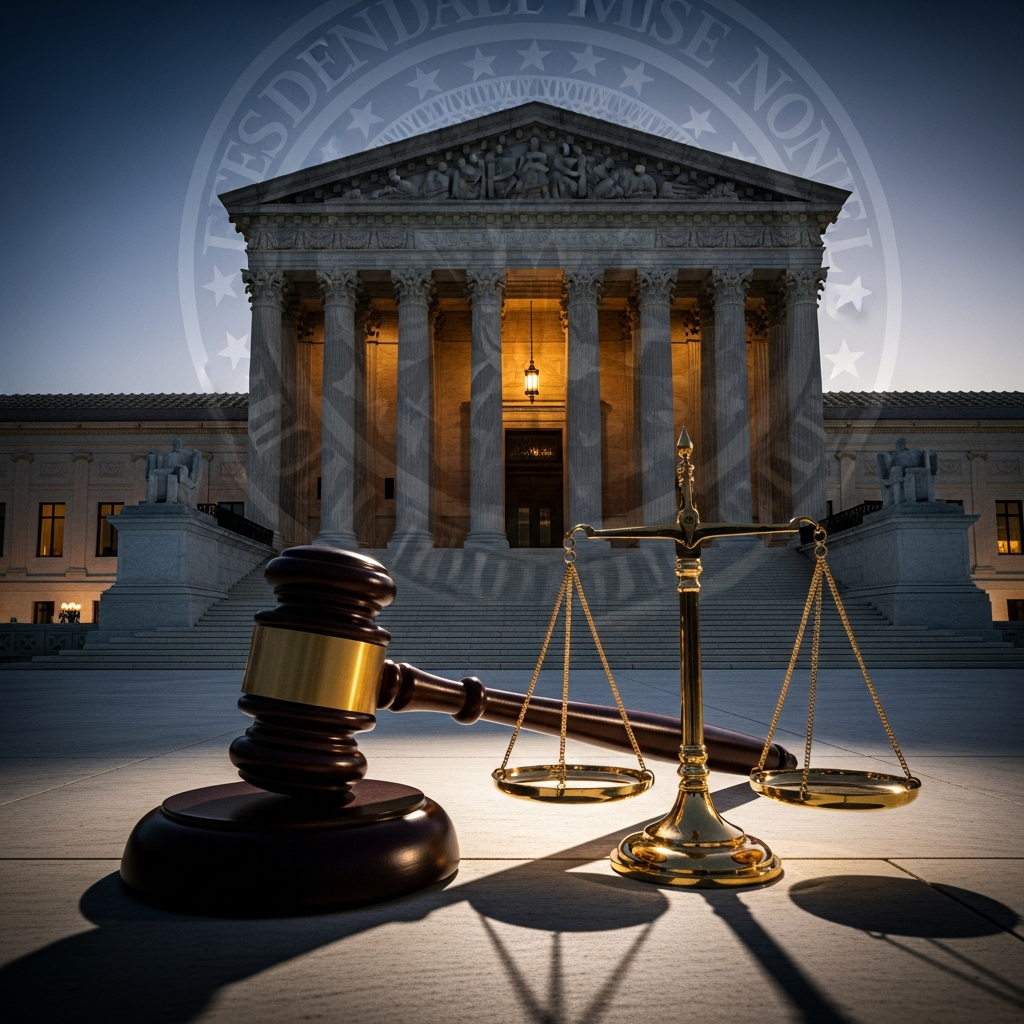Breaking legal news from Idaho reveals a pivotal development in the high-profile case against Bryan kohberger, accused in the tragic University of Idaho student killings. Amid intense public scrutiny, Kohberger has reportedly reached a plea agreement, dramatically altering the course of justice. Former Idaho Attorney General David leroy, a seasoned expert with decades of experience in state law, offers critical insights into this unexpected turn, explaining the strategic timing, the specific terms of the deal, and its implications for both the prosecution and the citizens of Latah County. His analysis sheds light on why prosecutors may have accepted an offer that bypasses a death penalty trial, despite the heinous nature of the alleged crimes.
Understanding the Plea Deal’s Timing
Bryan Kohberger’s apparent decision to settle the case through a plea agreement has understandably surprised many observers. However, according to former Idaho Attorney General David Leroy, the timing of this development, while seemingly last-minute, was strategically significant and perhaps the “only possible moment” for such a resolution to occur.
Why Now? The “Courthouse Steps” Moment
Leroy notes that significant legal cases frequently reach a settlement just before trial is set to begin, often described as happening on the “courthouse steps.” In Kohberger’s case, the agreement reportedly materialized precisely as preparations were underway to send out an enormous pool of 10,000 jury questionnaires – a lengthy and complex process. The timing was also critical because a key defense strategy, the alternate perpetrator theory, had recently been dismissed. This legal ruling meant that if the case went to trial, the focus would be solely on the evidence presented against Kohberger. This narrowing of the legal battleground, combined with the imminent start of trial procedures, created a specific window where a plea deal became feasible and potentially desirable for both sides.
Inside the Agreement: Terms of the Kohberger Plea
Details emerging about the Bryan Kohberger plea deal paint a clear picture of the terms accepted. Far from involving reduced charges, the agreement reportedly requires Kohberger to plead guilty to every count against him related to the four murders. This constitutes a highly pro-prosecution offer initiated by the defense, according to Leroy.
No Trial, No Death Penalty, No Appeals
A central outcome of the agreement is the avoidance of a lengthy and complex criminal trial, which had been scheduled to potentially last for months. Instead, Kohberger accepts the maximum penalties for each charge. Crucially, these sentences are expected to be served consecutively, not concurrently. Reports indicate this translates to four consecutive life terms without the possibility of parole. A significant aspect of the deal is that the death penalty, which had been on the table due to the heinous facts of the case, is no longer being pursued by the prosecution. Furthermore, as part of the agreement, Kohberger reportedly waives all rights to appeal his conviction and sentence, ensuring a final resolution that is not subject to years, or even decades, of subsequent legal challenges.
The Prosecutor’s Decision: Balancing Certainty and Community Interest
Former AG David Leroy highlights the pivotal role played by the Latah County prosecuting attorney in accepting this plea deal. In Idaho, as in many states, the prosecutor serves as the “gatekeeper” in potential death penalty cases, holding significant discretion over whether to pursue capital punishment or accept an alternative resolution.
The Gatekeeper’s Rationale
Leroy explains that the decision ultimately rested on what the prosecutor determined was in the “best interest of his community,” representing the 44,000 citizens of Latah County. Given the defense’s “very strong pro-prosecution plea offer,” the prosecutor weighed the benefits of certainty against the uncertainties and burdens of a full trial and subsequent appeals. Accepting the plea deal provides an immediate and certain outcome: Bryan Kohberger will be convicted on all counts and face maximum, consecutive sentences, ensuring he will “never see the light of day as a free man.” For the prosecutor, this certainty of conviction and permanent incarceration, coupled with avoiding years of potential appeals, was deemed sufficiently desirable and “defensible” for the community he serves.
The Benefits and Costs: Avoiding Trial, Ensuring Incarceration
From a practical standpoint, the Bryan Kohberger plea agreement offers significant advantages for the state and county, though the human costs remain profound. By accepting the plea, the legal system bypasses several lengthy and resource-intensive stages.
Skipping Weeks of Courtroom Drama
According to Leroy, the deal avoids at least two weeks that would have been dedicated solely to jury selection for a potentially three-month criminal trial. A trial of this magnitude would require immense resources, including courtroom time, personnel, and expert witnesses. More importantly, it eliminates the prospect of years of appeals that would almost certainly follow a conviction, regardless of the outcome, particularly in a death penalty case. These appeals could potentially drag on for 15 years or even longer, prolonging the legal uncertainty and emotional burden on the community and the victims’ families. The plea offers a clear, final judicial outcome now.
Financial Impact on Latah County
Beyond the legal calendar, the plea deal also carries significant financial implications. Former AG Leroy pointed out that avoiding a lengthy trial and the subsequent multi-year appeals process could spare the citizens of Latah County from spending potentially “millions of dollars.” While justice is paramount, the economic reality of complex, high-profile capital cases is substantial. The plea offers an “appropriate result” from a cost perspective, preventing a massive drain on public funds that would otherwise be incurred over a decade or more of litigation.
The Human Toll: Victim Families Speak Out
While the legal system reaches a point of certainty with the plea deal, the emotional impact on the victims’ families is complex and, for some, deeply painful. David Leroy acknowledged that “nobody wins in a murder case,” emphasizing that no legal outcome, including execution, can ever bring back the young lives lost.
Rights vs. Veto Power
Idaho law provides strong victims’ rights, mandating that prosecutors notify families when plea deals are being considered. This allows families to be informed and involved in the process. However, Leroy clarified that while families have the right to be informed and have input, state law does not grant them the power to veto or block an agreement reached between the prosecution and defense. This distinction has been a source of frustration for some. The family of victim Kaylee Goncalves, in particular, has expressed strong dissatisfaction, describing the outcome as “secretive” and a “hurried effort.” They feel the state has “failed us” and that the last-minute nature of the deal felt “shocking and cruel,” re-traumatizing grieving families and failing to deliver what they see as true accountability.
What Comes Next: The Sentencing Hearing
With the plea agreement reportedly in place, the next formal step in the legal process is the sentencing hearing. According to former AG David Leroy, this hearing is currently scheduled for July 23.
Voices to be Heard
The sentencing hearing is a critical phase where the full human impact of the crimes is often articulated. Judge Hippler is expected to preside and will hear from several parties. This includes powerful victim impact statements from the families of the four students, allowing them to express their profound loss and the devastating effects of the crimes on their lives. The prosecution will present its case for the agreed-upon maximum consecutive sentences. The defense counsel will also have an opportunity to speak, as may experts relevant to the case. Finally, Bryan Kohberger himself is expected to have the opportunity to address the court and potentially make a public statement. This hearing marks a formal conclusion to the initial judicial process, although the emotional journey for all involved continues.
Expert Perspective: A “Good Resolution”?
Despite the varied reactions, particularly among victim families, former Attorney General David Leroy maintains that the plea agreement, while perhaps “surprising,” ultimately represents “the best result” or a “good resolution” under the circumstances. His perspective hinges on the concept of certainty achieved for the community.
By ensuring Bryan Kohberger pleads guilty to all charges and receives consecutive life sentences without parole, the deal guarantees his permanent incarceration, removing any future threat he might pose. More significantly, it bypasses the lengthy, uncertain, and emotionally draining process of a trial and subsequent appeals that could span decades. While acknowledging potential dissatisfaction, particularly regarding the avoidance of a death penalty trial and the lack of more direct input for some families, Leroy argues that the certainty of Kohberger remaining behind bars for life is, on balance, the optimal outcome for the community, preventing years of legal limbo and ensuring a definitive end to the court proceedings.
Frequently Asked Questions
Why did Bryan Kohberger’s plea deal happen now?
According to former Idaho Attorney General David Leroy, the timing was strategic, happening just before the massive process of sending out 10,000 jury questionnaires and after a key defense theory was dismissed. This specific moment was considered the “only possible moment” for a settlement, occurring on the “courthouse steps” as trial preparations were finalizing.
What are the terms of the Bryan Kohberger plea agreement?
Based on details provided by former AG Leroy and external reports, Bryan Kohberger is expected to plead guilty to all charges. The agreement includes accepting maximum penalties served consecutively, reportedly resulting in four consecutive life sentences without parole. A key term is waiving all appeal rights, and the death penalty will no longer be pursued by the prosecution.
How have victim families reacted to the Kohberger plea deal?
Reactions have varied. While some may find it a necessary step towards finality, at least one family, that of Kaylee Goncalves, has expressed strong dissatisfaction. They described the deal as “secretive,” “hurried,” and felt the state had “failed us.” Former AG Leroy noted that while Idaho law requires notifying families about plea considerations, it does not grant them the power to block the agreement.
In conclusion, the reported plea agreement in the Bryan Kohberger case brings a degree of legal finality to a case that has gripped national attention. As former Idaho Attorney General David Leroy explains, the deal provides the certainty of lifetime incarceration and avoids a protracted trial and years of appeals, which were seen as significant benefits for the community of Latah County. However, as reactions from victim families highlight, the pursuit of legal closure does not erase the profound grief and complex emotions tied to such a devastating loss, underscoring the difficult balance between judicial process and the human desire for accountability. The sentencing hearing is the next step, providing an opportunity for the victims’ voices to be heard before the formal imposition of sentence.



